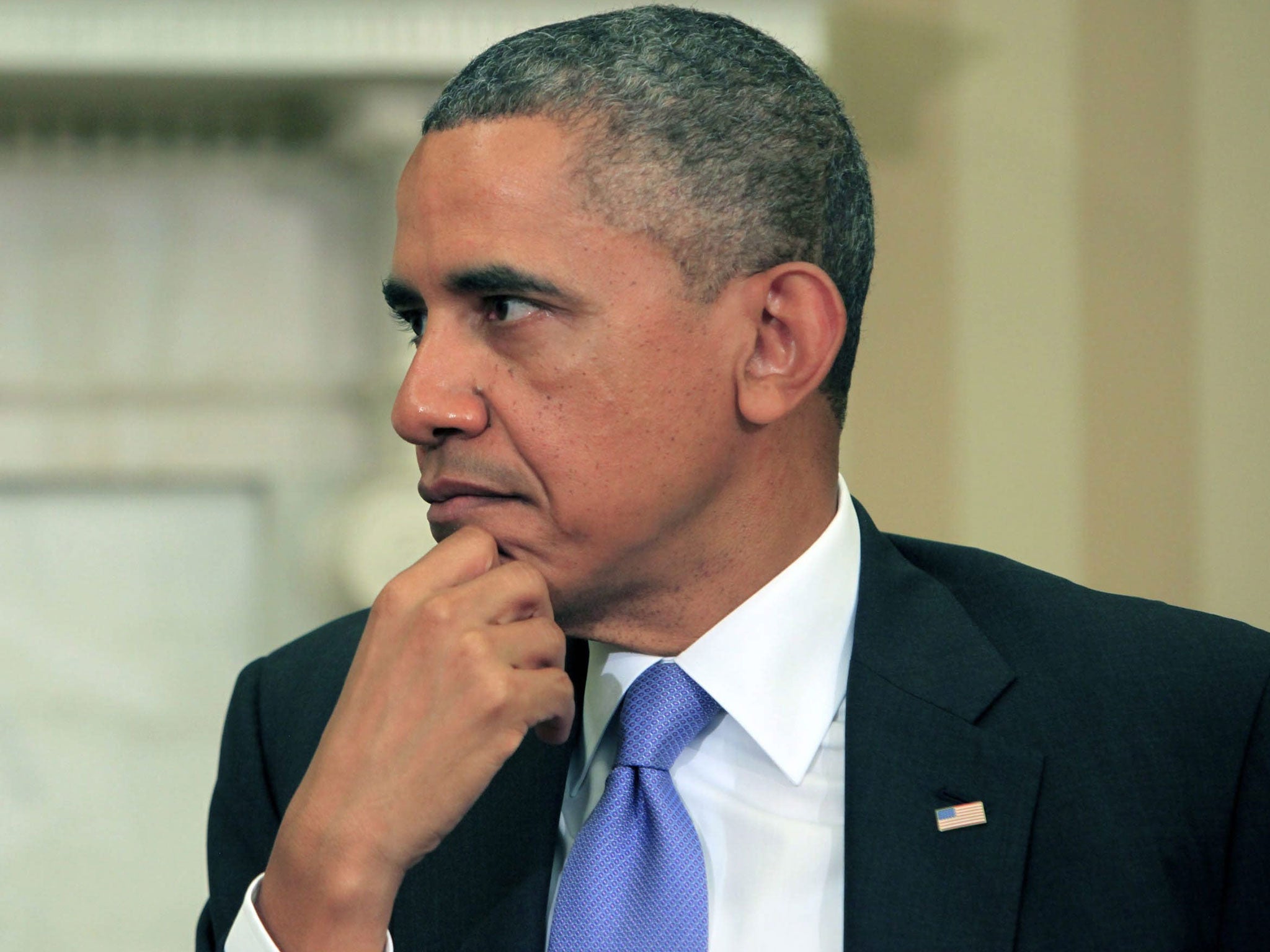New low for US-Russian relations as Barack Obama snubs Vladimir Putin
US President shows his frustration at Moscow’s decision to grant Edward Snowden asylum

President Barack Obama has pulled out of a summit with Russia’s Vladimir Putin in a deliberate show of frustration at Moscow’s decision last week to give temporary asylum to the American fugitive Edward Snowden.
The rare diplomatic rebuke will deepen the chill over a relationship that had already become frosty to a point reminiscent of the cold war. Areas of tension range from the bloodshed in Syria, missile defence in Europe and US criticism of Russia on human rights.
Mr Obama, who earlier accused Russia of slipping back “into cold-war thinking”, will nonetheless attend a meeting of the Group of 20 nations in St Petersburg on 5 September. He was to have travelled from there to Moscow for bilateral discussions with Mr Putin. That will no longer happen.
Pressure had been building on Mr Obama at home to respond firmly to Russia for allowing Mr Snowden to leave Moscow airport, where he had been holed up for weeks, and take up a temporary residency there.
Washington had made clear its desire to see Mr Snowden returned to US soil to face possible espionage charges arising from his leaking of details of surveillance programmes run by the National Security Agency.
US officials were at pains last night to insist that communications between the two countries were by no means being severed because of the summit pull-out. A meeting tomorrow in Washington between the US Secretaries of State and Defence, John Kerry and Chuck Hagel, with their Russian counterparts was still on.
“We’ll still work with Russia on issues where we can find common ground, but it was the unanimous view of the President and his national security team that a summit did not make sense in the current environment,” national security spokesman Ben Rhodes said.
The Kremlin said the invitation to Mr Obama remained open and normal co-operation would continue. “Russian representatives are ready to continue working together with American partners on all key issues on the bilateral and multilateral agenda,” Foreign Ministry advisor Yuri Ushakov said. But he added that the scuppering of the summit by the US showed its inability to pursue ties with Moscow on an “equal footing”.
Mr Ushakov suggested Mr Snowden was an American problem that Russia did not ask to become involved in. “This decision is clearly linked to the situation with Snowden, which hasn’t been created by us,” he said.
White House spokesman Jay Carney pointed to the general malaise in US-Russia ties. “Given our lack of progress on issues such as missile defence and arms control, trade and commercial relations, global security issues, and human rights… we have informed the Russian government we believe it would be more constructive to postpone the summit until we have more results from our shared agenda,” he said.
But he also made clear that the Snowden affair may have been a tipping point, saying: “Russia’s disappointing decision to grant Edward Snowden temporary asylum was also a factor that we considered in assessing the current state of our bilateral relationship”.
The President aired his frustration during an appearance on the Jay Leno talk show broadcast hours before the decision to withdraw from the summit was made public. “There have been times where they slip back into cold-war thinking and a cold-war mentality,” he said. “What I say to President Putin, is that’s the past and we’ve got to think about the future.”
Support for Mr Obama’s decision was swift from his own party. “Putin is acting like a schoolyard bully and doesn’t deserve the respect a bilateral summit would have accorded him,” Charles Schumer, a Democrat Senator from New York, said.
The souring of the ties accelerated last year when the US passed legislation allowing sanctions against Russia for human rights violations and Moscow blocked the adoption of Russian babies by Americans.
Join our commenting forum
Join thought-provoking conversations, follow other Independent readers and see their replies
Comments